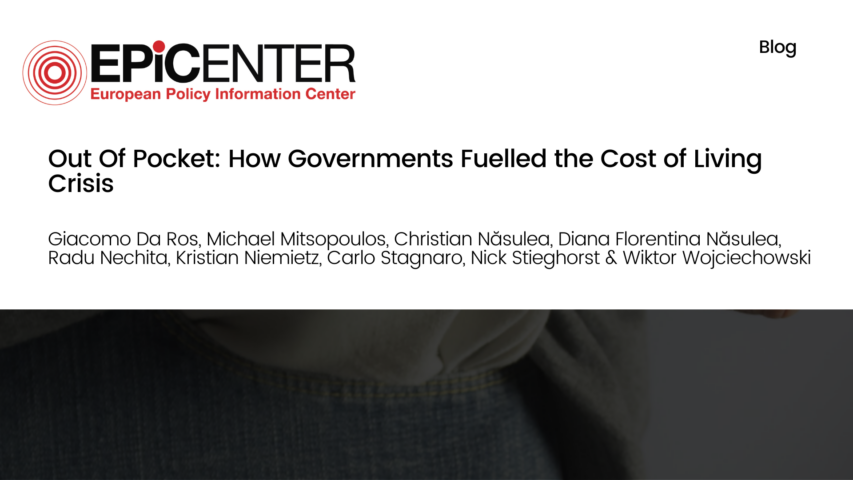Out Of Pocket

Out Of Pocket
30 June 2022
This paper examines the tax and regulatory policies fuelling inflation across five European countries. The detailed analysis of high price levels in Germany, Italy, Poland, Greece and Romania for everyday products such as energy, housing, health, telecommunication, digital technology and other basic consumer goods could be immediately reduced with the right tax and regulatory reforms.
The current cost-of-living crisis across Europe has been exacerbated by already high prices in various sectors. These sectors are notably those with higher government interventions that reduce competition and increase tax burdens.
Whilst monetary policy has clearly played an important role in fuelling inflation, the tax and regulatory policies set by governments also contributed to the elevated price levels across the EU.
The primary burden of price increases is being felt by lower-income households, as these spend a greater portion of their income on everyday products. This may lead to social and political frictions if inflation remains unaddressed.
The paper finds that in sectors with strong economic competition (such as the telecommunications sector) consumer costs are falling, so similar regulatory and tax environments should be considered in sectors showing the opposite.
Download or share this publication
View the PDF
EPICENTER publications and contributions from our member think tanks are designed to promote the discussion of economic issues and the role of markets in solving economic and social problems. As with all EPICENTER publications, the views expressed here are those of the author and not EPICENTER or its member think tanks (which have no corporate view).



